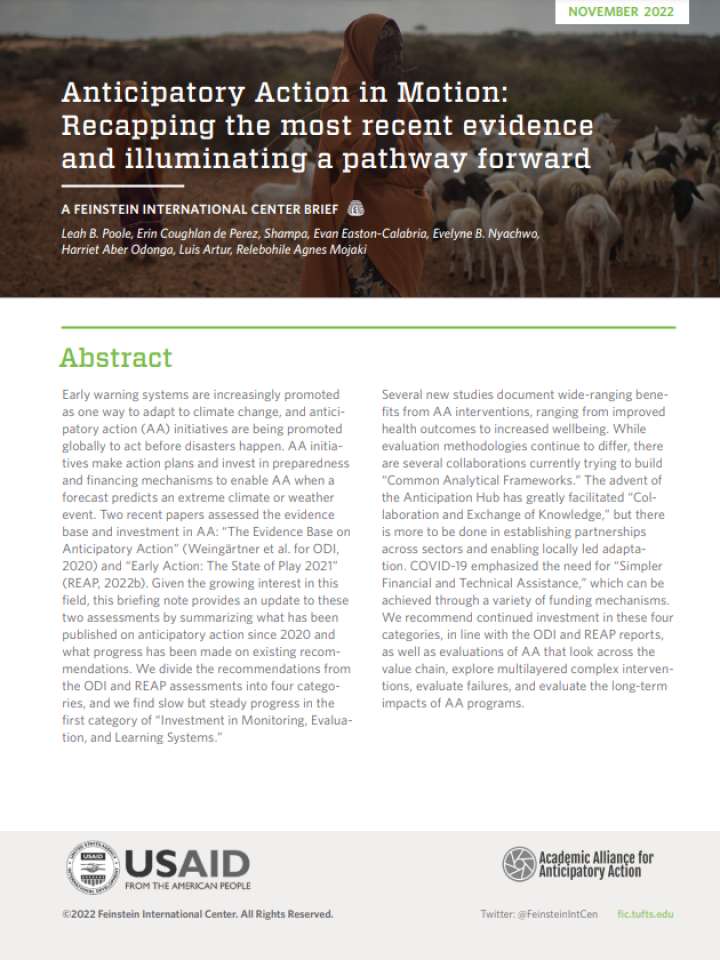Anticipatory action in motion: Recapping the most recent evidence and illuminating a pathway forward
Early warning systems are increasingly promoted as one way to adapt to climate change, and anticipatory action (AA) initiatives are being promoted globally to act before disasters happen. AA initiatives make action plans and invest in preparedness and financing mechanisms to enable AA when a forecast predicts an extreme climate or weather event. Two recent papers assessed the evidence base and investment in AA: “The Evidence Base on Anticipatory Action” and “Early Action: The State of Play 2021”. Given the growing interest in this field, this briefing note provides an update to these two assessments by summarizing what has been published on AA since 2020 and what progress has been made on existing recommendations.
The paper finds slow but steady progress in the first category of “Investment in Monitoring, Evaluation, and Learning Systems.” Several new studies document wide-ranging benefits from AA interventions, ranging from improved health outcomes to increased wellbeing. While evaluation methodologies continue to differ, there are several collaborations currently trying to build “Common Analytical Frameworks.” The advent of the Anticipation Hub has greatly facilitated “Collaboration and Exchange of Knowledge,” but there is more to be done in establishing partnerships across sectors and enabling locally led adaptation. COVID-19 emphasized the need for “Simpler Financial and Technical Assistance,” which can be achieved through a variety of funding mechanisms. The paper recommends continued investment in these four categories, in line with the ODI and REAP reports, as well as evaluations of AA that look across the value chain, explore multilayered complex interventions, evaluate failures, and evaluate the long-term impacts of AA programs.
Explore further
